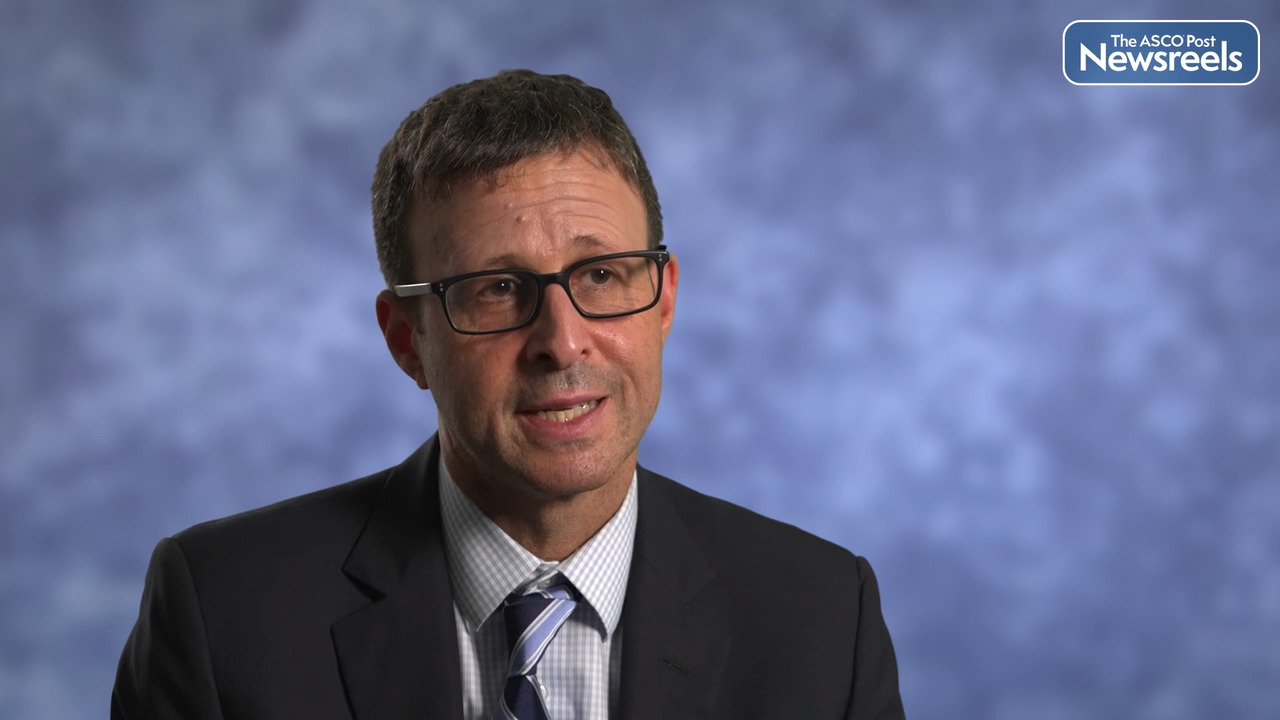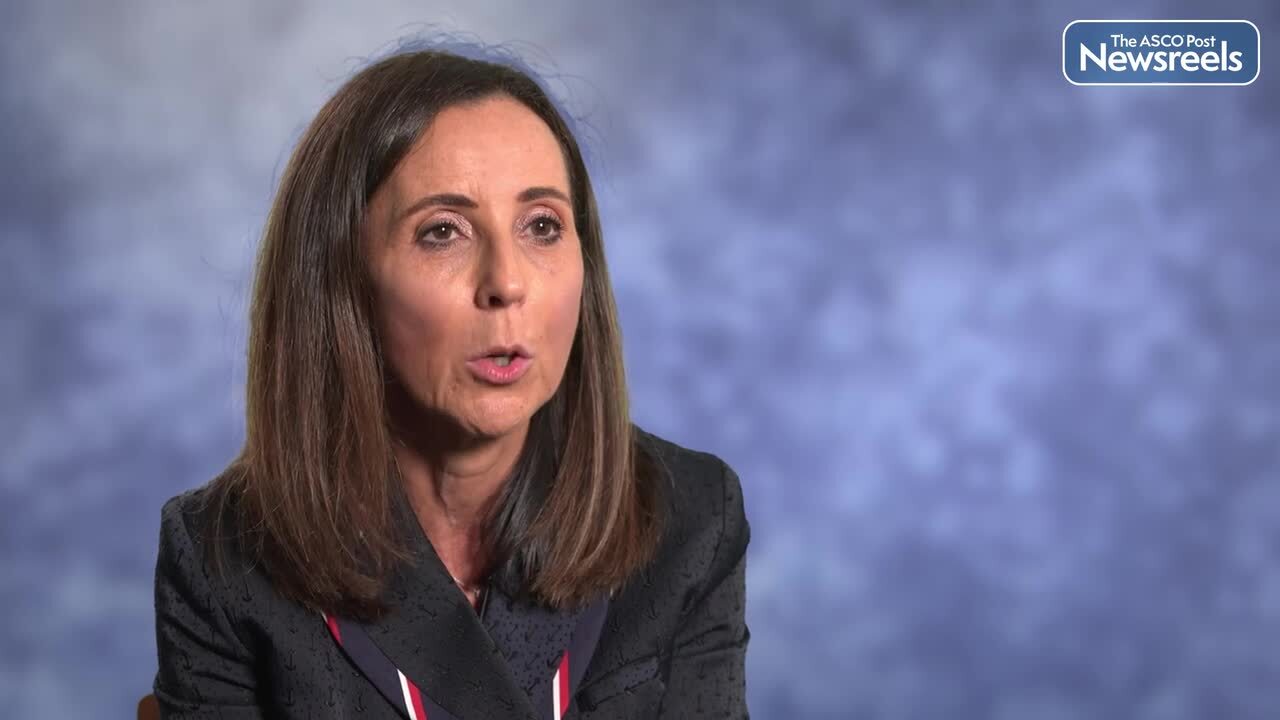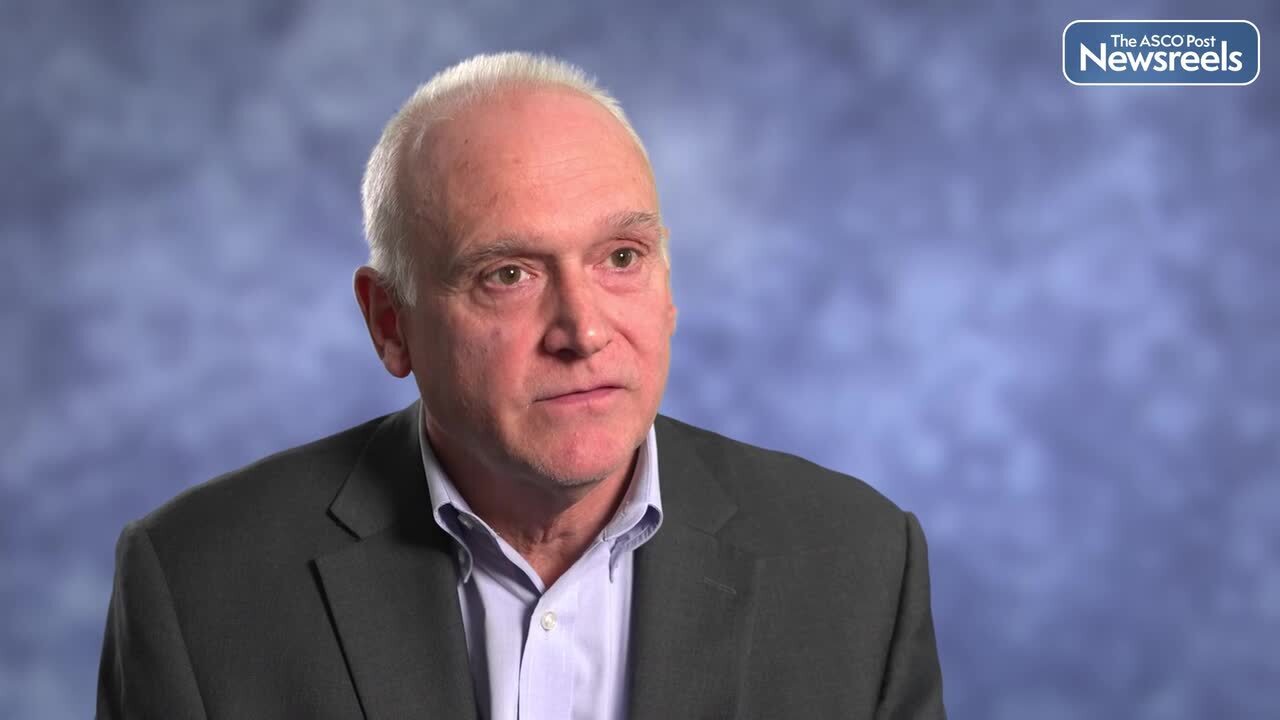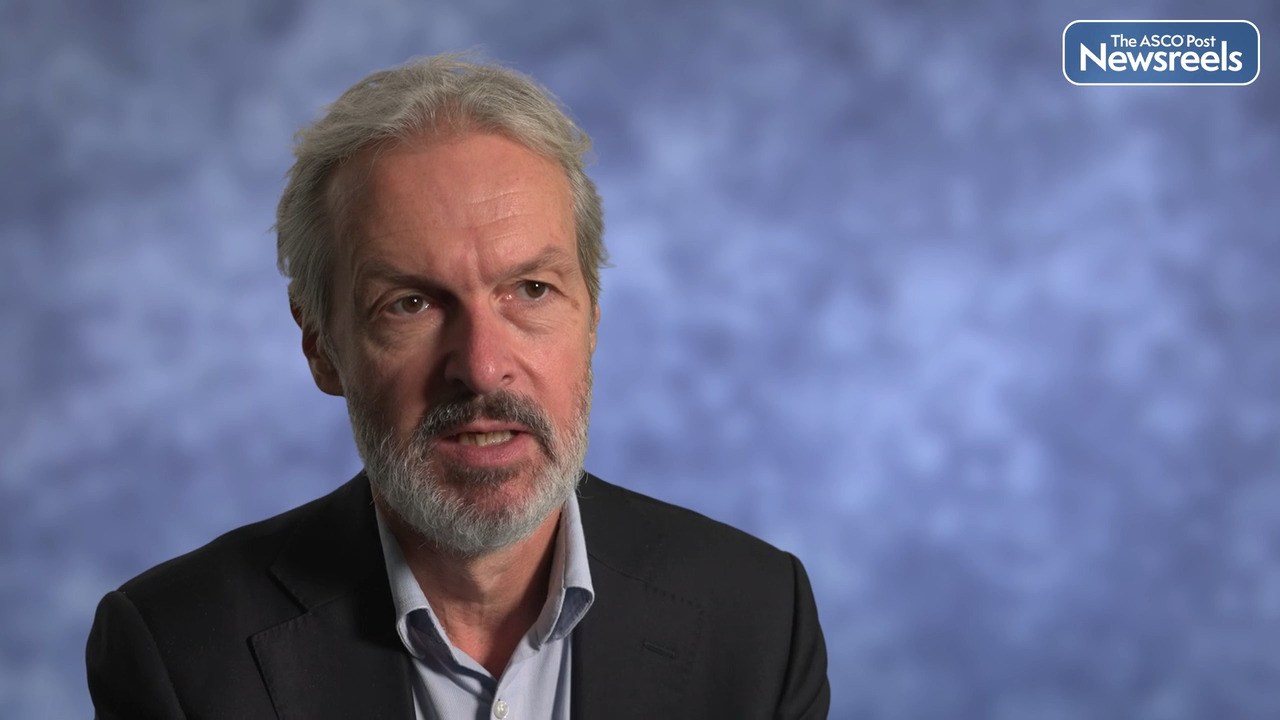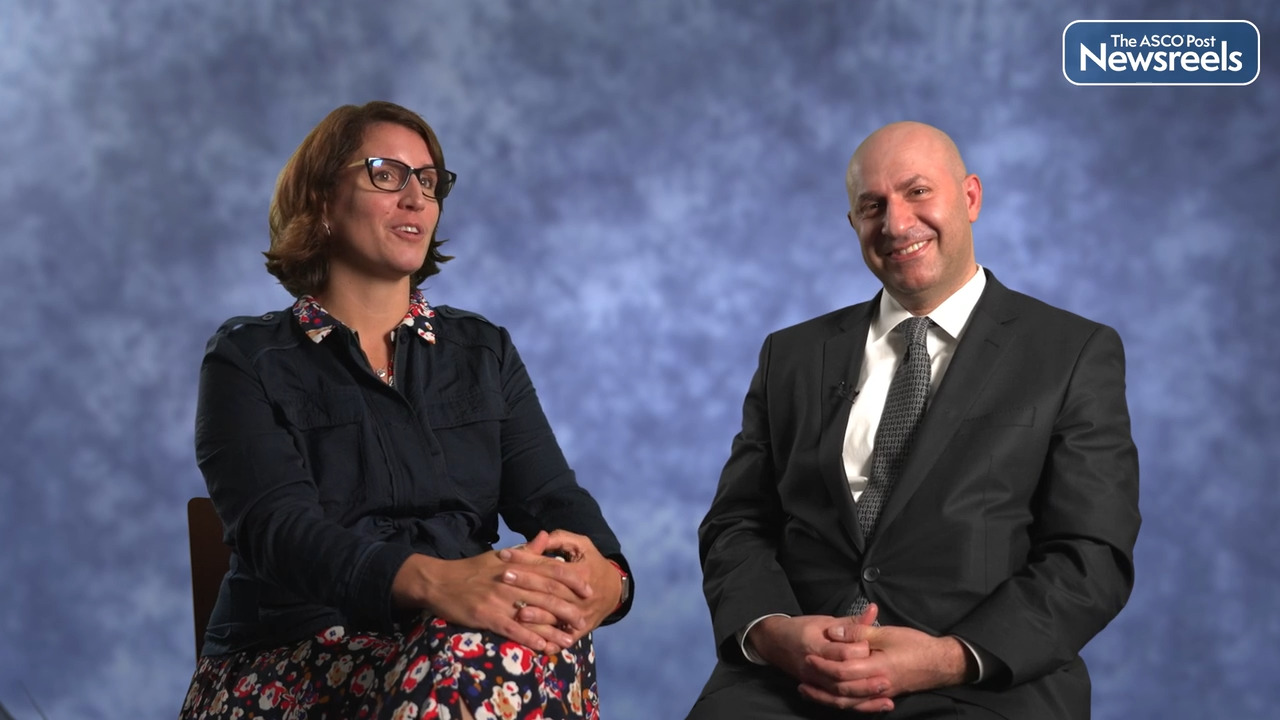Transcript
Disclaimer: This video transcript has not been proofread or edited and may contain errors.
Dr. Laurence Albiges:
Professor Choueiri, it's such a pleasure to have you here in Paris for this ESMO 2022. And one of the highlight of this ESMO is clearly the eagerly awaited results of COSMIC-313. This study is key to the RCC field, given that it is challenging a combination in first line. So can you tell us more about this presidential presentation?
Dr. Toni K. Choueiri:
Yeah, well, we were waiting forever and I'm so pleased that ESMO leadership, Dr. Professor Paters Andre and Swanton have picked COSMIC-313 for presidential on Monday. So this is the first time the past several years, four or five years, combination immunotherapy based therapies in RC became standard, whether we GFIO, or IOIO. And it is somewhat unrealistic to randomize patient to single agent TKI. So we designed at that time, a phase three study where the control will be actually a contemporary realistic control was doublet. And we picked up nivolumab and ipilimumab which was one of the first combination that came to practice. And on top of that we added cabozantinib at 40 milligram once a day. There was safety data that came from one of the arm of a phase three trial that was discontinued. There was also another phase one that came up that 40 milligram is appropriate, was in GU tumors. So we launched that study, and the patient over randomized to the triplet versus the doublet. It was placebo controlled PFS by blinded independence. Independence central review was actually the primary endpoint.
Dr. Laurence Albiges:
So what are the results?
Dr. Toni K. Choueiri:
The results, the results. Well, this was a positive study, luckily. The triplet did beat the doublet with a hazard ratio of point 73. So 27% decrease in the risk of progression or death, favoring the triplet with some other important finding that toxicity, not surprisingly, especially diarrhea, liver function increase, which could be immune related or due to cabozantinib. And hand-foot skin reaction were higher. Nevertheless, discontinuing all study treatment on each arm were 12% in the triplet, 5% in the doublet. Responses were numerically higher in triplet, but there was a signal in patient with intermediate IMDC risk score. They seem to benefit more than the poor risk score in term of PFS or response rate.
We're going to dig into this. It's a bit, I have to tell you, Professor Albiges, it's a bit counterintuitive. You would think those patients with poor risk may benefit more, but on the other hand, maybe those patients poor risk that TKI doesn't do well at all, and they don't receive enough therapy anyhow. So we are going to dig into this and continue to look for OS. It was very immature at first interim analysis.
Dr. Laurence Albiges:
So more follow up needed, but clearly a positive trial in first line setting, potentially changing the landscape therefore.
Dr. Toni K. Choueiri:
Potentially. I think it's early to see if this is practice changing. I would say potentially, yes, it will add another options for our patients. Now it is on us clinician to figure out and members of the steering committee to figure out who is the population of patient that should get triplet and not get doublet, for example.
Dr. Laurence Albiges:
Can you say a word on toxicity or drug exposure?
Dr. Toni K. Choueiri:
Yeah. I think overall, and this is what not surprising, especially because there are overlapping toxicity between the TKI and immunotherapy, that we've seen higher liver function tests increase all grade and high grade, and we've seen higher hand-foot skin reaction all grade, as well as diarrhea. I think, especially with diarrhea and liver toxicity, you don't know this was a placebo controlled trial, which one is which. In my practice, I have considered this patient immune related [inaudible 00:04:42] proven otherwise. Also, the response rate need to be continuously, I think, monitored. We need an update.
One of the vexing things now is the fact that it's hard to match all their studies response rate because after your trial and your colleague from France with Carmina, we know that the application of cytoreductive nephrectomy comes into doubt. So this study, COSMIC-313, is the study that has the least amount of patient and percentage of patient with kidney out. One of the three patient have their kidney in. At least I can tell you from my patient, all these was kidney in with a target lesion, and there is no way you're going to have a partial response and certainly not a CR in this. So the rate actually of responses in my opinion, was lower in the control arm and historical control.
Dr. Laurence Albiges:
This is clearly to be taken into consideration.
So well, congratulations for this amazing study, very well conducted, that is challenging the standard of care.
Dr. Toni K. Choueiri:
Thank you very much. And hopefully next year, all of you will be in Madrid for ESMO 23.
